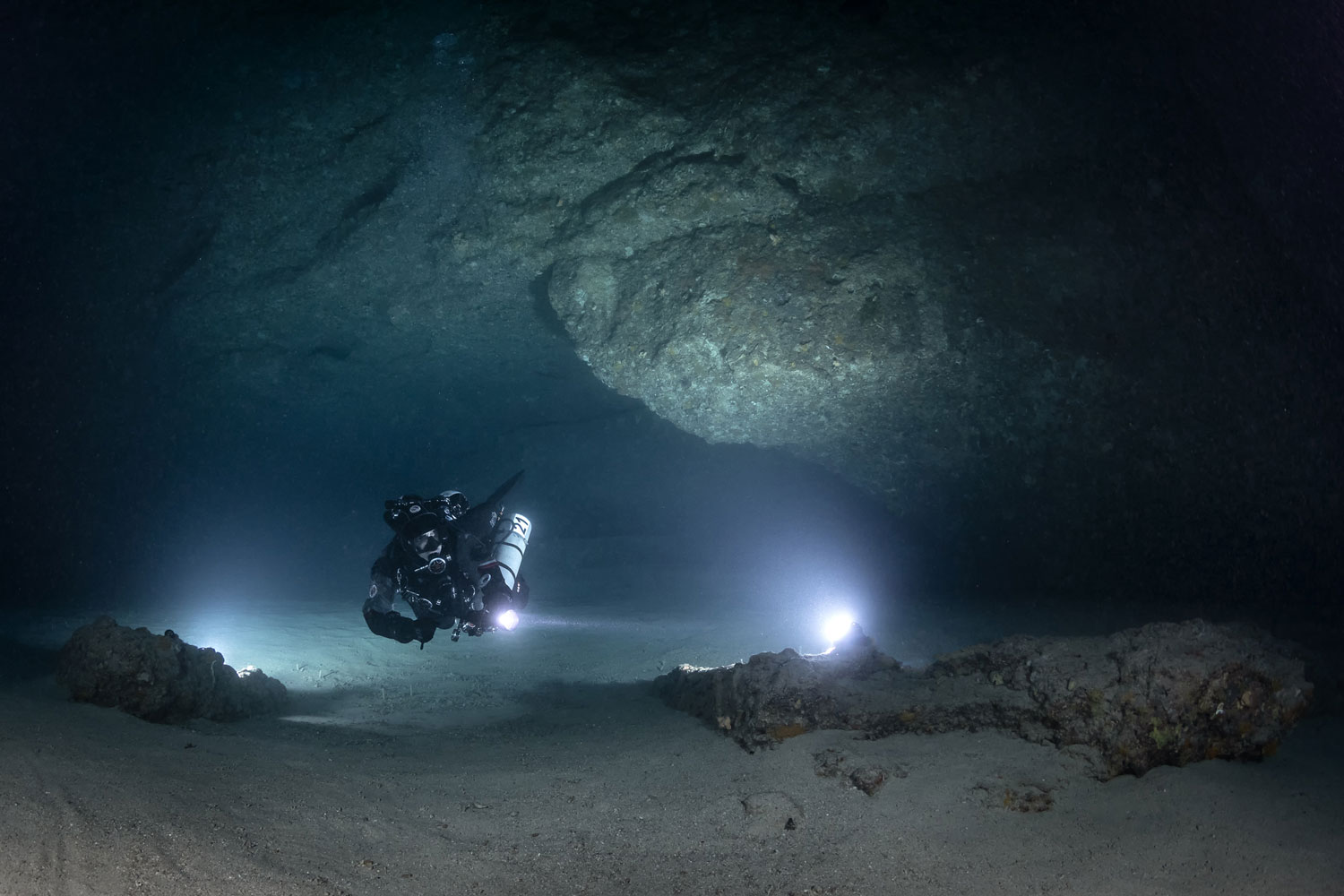Features
Risks and Hazards in SCUBA Diving: Perception Versus Reality
While SCUBA training agencies include risk awareness protocols to decrease hazards associated with recreational SCUBA diving, incidents still occur. Recently, DAN researchers and partners conducted a study in an effort to learn more about whether additional campaigns or training programs are necessary to increase dive safety. Rather than focusing on actual risks, the authors uniquely studied perceived risks associated with SCUBA diving. Findings from the study were published in “Frontiers of Psychology” in March 2018.
The study investigated the perception of dive safety from both the viewpoint of the diver, as well as the viewpoint of dive operators. The study was specifically looking for gaps between the two viewpoints. Additionally, the study proposed safety programs or additional training sessions that aligned with the reported perceptions.

Data collection involved questionnaires answered by 3,766 divers in Europe and 91 dive operators in Italy. The surveys asked questions involving safety aspects that are important to have at a dive center (e.g. staff experience, dive center insurance, quality of rental equipment, etc.), factors that influence buddy choice (e.g. certification level, age, experience, fitness level, etc.), the importance of various types of equipment (e.g. knife, dive computer, torch, etc.) and incidents perceived as a risk for divers (e.g. changes in weather, equipment failure, gas poisoning, drowning, etc.).
The data indicated that divers and dive operators regarded safety as important, but both perceptions did underestimate some risks. The primary conclusion of the study is that some of the more important risks that are not fully considered, either by dive shops, divers or both, need to be impressed upon divers and/or dive shops during training or specific campaigns.
After analysing data from this study, the authors recommended two programs, to help provide a culture of safety amongst scuba divers and dive centres. The first is the Hazard Identification and Risk Assessment (HIRA), a DAN initiative to provide dive operators with the knowledge necessary to decrease risks within their businesses. The second is the Diving Safety Officer (DSO), a program to train individuals to properly oversee HIRA.
The top rated piece of equipment for both dive centers and scuba divers was a dive computer.
The researchers found similarities in the two viewpoints analysed. For instance, both the dive center and the SCUBA diver believed the proximity of a treatment chamber to be of low importance when rating safety aspects offered at a dive center. In terms of matching buddy pairs, both the dive centers and the SCUBA divers rated gender, age and family member to be of lowest importance. The top rated piece of equipment for both dive centers and scuba divers was a dive computer. The authors recommend training programs correlate to these shared perceptions. For example, dive training should include more information on generic dive computer use.

There were some interesting discrepancies between the two viewpoints. Dive centers reported that the dive instructors’ recommendation should be the most influencing factor when finding the appropriate buddy on the boat. Individual divers, however, did not rate the instructor recommendation as influential in comparison to other factors. Dive centers conveyed that the highest perceived risks in SCUBA diving are decompression illness, drowning, and boat accidents—these were also what the dive centers reported to be the top dive accidents they have experienced. While divers agreed with decompression illness being high risk, they were also highly concerned with equipment failure. Divers were least concerned with marine life and drowning. The shared perception regarding decompression illness led authors to suggest the need for safety campaigns focused on decompression illness. The authors additionally advised courses focused on hazardous marine life and how to treat the injuries as a recommended action. One of the most notable discrepancies reported was that the number of accidents witnessed by SCUBA divers was much higher than the accidents reported. The authors recommended the need to help enable accident reporting by dive centers.
An interesting aspect of this study is the fact that the majority of the participants, all of whom volunteered, are experienced divers. This could have swayed the data; in being experienced, the divers have witnessed more incidents and may take fewer risks as a result. The authors suggested that it could be beneficial to ensure students learning to dive understand the importance of research in an effort to continually increase the safety of the sport. The data could be more meaningful if surveys were answered by divers of varying experience levels.
While divers agreed with decompression illness being high risk, they were also highly concerned with equipment failure.
While this is one of the first studies to look at attitudes and perceptions of scuba diving risks, the results prove that this information can be beneficial when attempting to make recreational diving as safe as possible for all participants.

IN-DEPTH
This study was funded by the Green Bubbles RISE Project, H2020-MSCA-RISE-2014. The project has received funding from the European Union Horizon 2020 research and innovation program under the Marie Skłodowska-Curie grant agreement No. 643712. This paper reflects only the authors’ view. The Research Executive Agency is not responsible for any use that may be made of the information it contains.
REFERENCES
“Safety Priorities and Underestimations in Recreational Scuba Diving Operations: A European Study Supporting the Implementation of New Risk Management Programmes.” Frontiers in psychology 9 (2018): 383.
Serena Lucrezi1, Salih Murat Egi2,3, Massimo Pieri2, Francois Burman4,5, Tamer Ozyigit3, Danilo Cialoni2, Guy Thomas2, Alessandro Marroni2 and Melville Saayman1
1Tourism Research in Economics, Environs and Society, North-West University, Potchefstroom, South Africa, 2DAN Europe Research Division, DAN Europe Foundation, Roseto degli Abruzzi, Italy, 3Department of Computer Engineering, Galatasaray University, Istanbul, Turkey, 4DAN Southern Africa, Midrand, South Africa, 5DAN USA, Durham, NC, United States.

